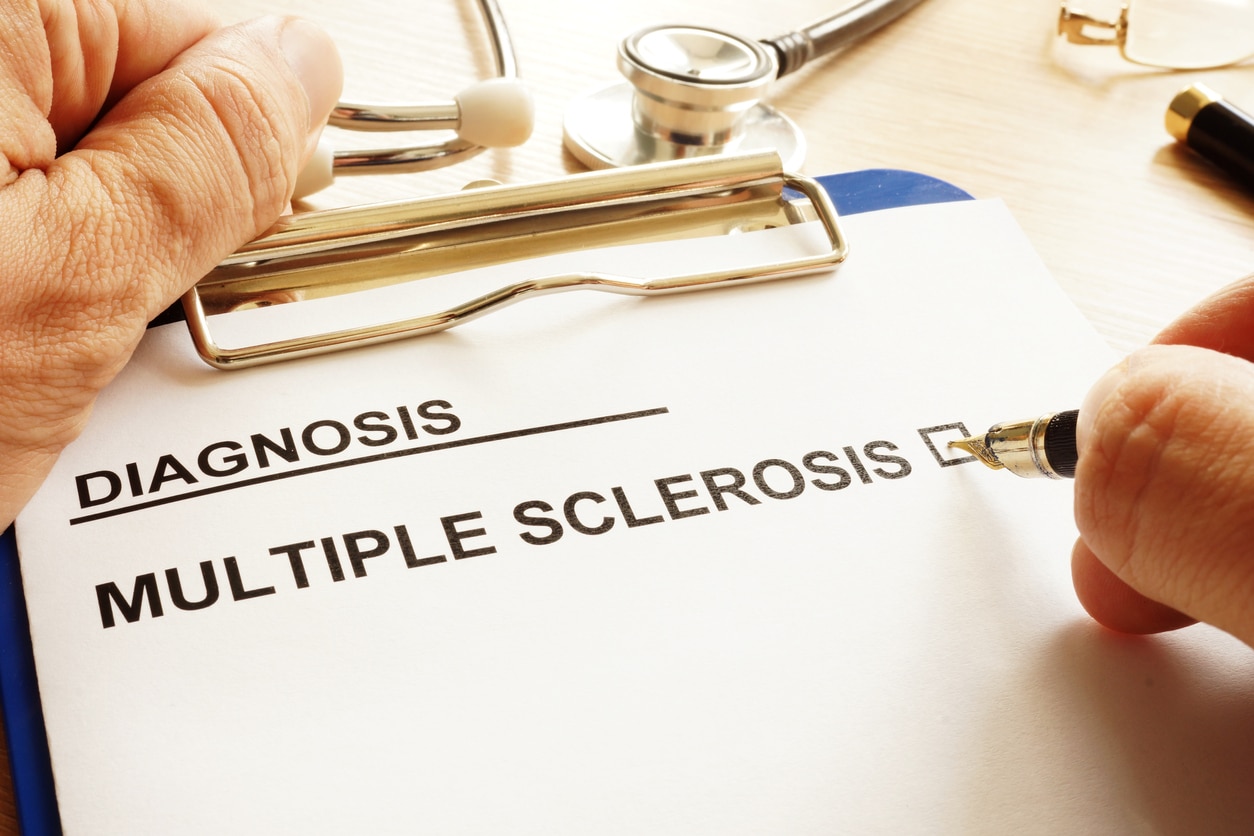
Can You Get Disability Benefits for Multiple Sclerosis? Yes, there is disability benefits available for people with multiple sclerosis, however it can be difficult. If you have been diagnosed with MS, it may be a question of when, not if, you will have to stop working. However, the nature of the disease and its symptoms can make getting multiple sclerosis long-term disability benefits difficult. Find out what you and your doctors need to know to receive the benefits you need when you can no longer work.
This blog post will explain why it is sometimes hard to get multiple sclerosis long-term disability benefits. It will review how flare-ups and changes in what an individual can do day-to-day can make it hard to prove disability and receive payments. It will also explain how a private long-term disability attorney can help an individual and his or her doctor explain MS symptoms and how they affect that individual’s ability to work over time.
MS Diagnosis Often Leads to Permanent Disability
Learning you have Multiple Sclerosis can be life altering. As a chronic and progressive autoimmune disease, receiving an MS diagnosis can set you on a path to reduced capacity and eventually permanent disability. The damage done to the central nervous system, including the brain, spinal cord, and optic nerves, affects every person differently. However, most people with MS suffer from some combination of:
- Loss of balance
- Uncoordinated movements, including problems walking
- Tremors or weakness in their limbs
- Problems with bowel or bladder control
- Numbness and tingling
- Hearing loss
- Vision problems
- Speech difficulties
- Trouble remembering or concentrating
- Depression
- Fatigue
Any of these symptoms can make working difficult. Together they can make it hard to know whether you will be able to do your job one day to the next. As your disease progresses, you, your family, and your doctor may start to consider whether you should stop working altogether.
Remissions & Flare Ups Make Receiving Disability Benefits Difficult
The availability of long-term disability benefits make the choice to leave work easier for many employees. Private, employer-provided disability insurance under ERISA (Employee Retirement Income Security Act) and public social security disability insurance (SSDI) can provide for your needs when your disease becomes too much for you to work around.
However, the unpredictable nature of Multiple Sclerosis can make applying for and receiving disability benefits difficult. For those who suffer from Relapsing-Remitting Multiple Sclerosis (RMMS), their experience of the disease includes periods of remission and flare-ups triggered by anything from stress to the weather, to nothing at all. What you can do varies widely one day to the next, making it hard to prove you are no longer able to be employed. Others, including those who experience Primary Progressive Multiple Sclerosis (PPMS), may experience a general escalation in symptoms over time. With either type of MS, doctors can unwittingly undermine your claim for Multiple Sclerosis long-term disability benefits by not clearly describing your disability, or sending mixed messages to your insurance company about your condition.
Even if you can prove disability, you may still face challenges receiving ongoing benefits. Insurance companies use a variety of methods to try to avoid making payments to people who they think could be employed. In addition to reviewing your medical records and speaking to your doctors, they may hire a private investigator or find you on social media. In those cases, the difference between good days (or better days) and worse days could work against you, making it seem like you are more capable than you normally are, even temporarily.
Getting Multiple Sclerosis Long-Term Disability Benefits
To fight back against insurance companies using your “good” days against you, it helps to have an experienced long-term disability attorney on your side. As your disease progresses, your attorney may be able to negotiate with your employer for workplace accommodations or part-time assignments. Then, when it comes time to stop working altogether, your attorney can help you:
- Create logs and journals to document good days and bad
- Document incremental changes in your ability to work
- Use your job description to explain the hardships you face
- Gather medical records and other proof of disability
- Guide doctors in responding to insurance company inquiries
- Complete your claim for multiple sclerosis long-term disability benefits
- Appeal long-term disability denials in court
If your Multiple Sclerosis has made working every day impossible, you need to know there are other options out there. At Bross & Frankel, our long-term disability attorneys understand the progression of MS. We know how to work with employers, doctors, and your insurance company to get you the benefits you need to stop working and still meet your needs. Contact us or call us today at 856-795-8880 for a complimentary consultation.